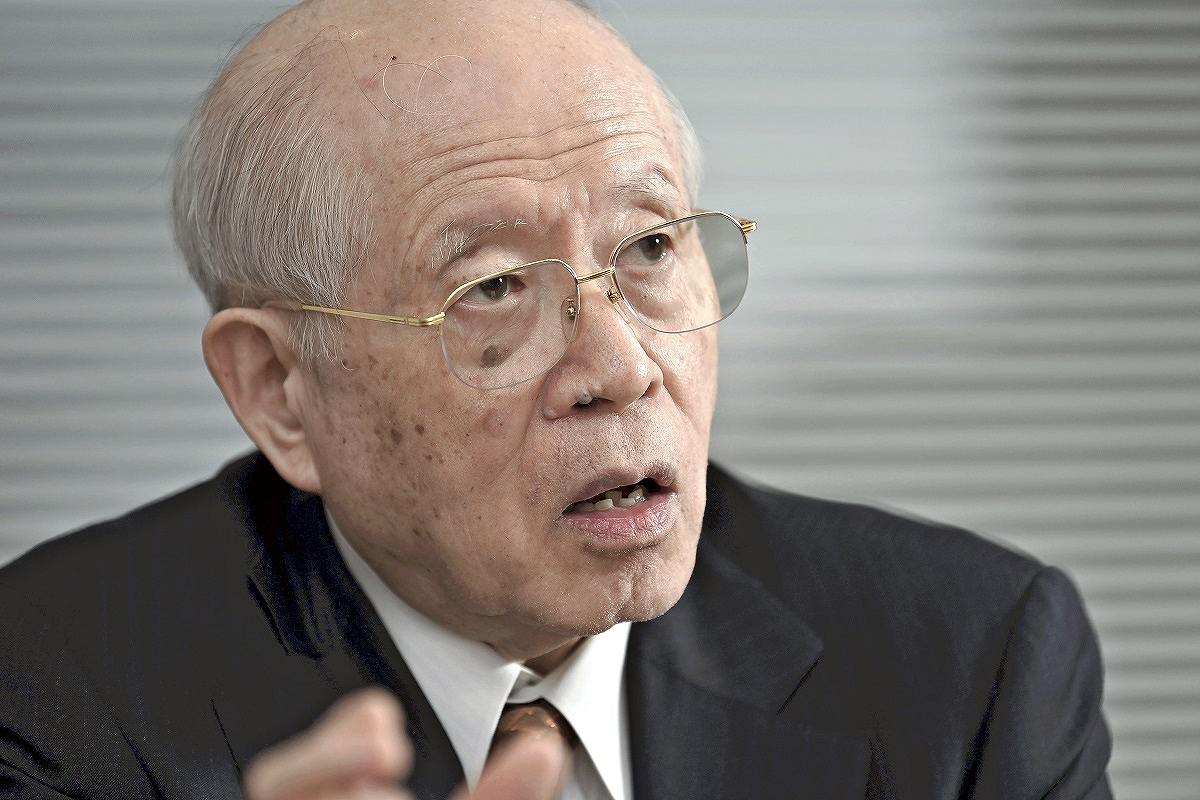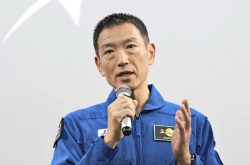Japan’s Nobel Laureate in Chemistry Says Openness and Internationalism Hold the Key to Scientific Development

Ryoji Noyori
13:45 JST, December 6, 2020
The Yomiuri Shimbun asked Ryoji Noyori, winner of the 2001 Nobel Prize in Chemistry, for his thoughts on the incoming U.S. administration. The following is excerpted from the interview.
***
The Yomiuri Shimbun: U.S. President Donald Trump’s administration has shown noticeable disrespect for science, drawing much criticism from the scientific world.
Ryoji Noyori: Evidence is needed to rationally carry out various policies, and in particular, scientific proof constitutes the core.
U.S. President Trump has conspicuously ignored the advice of scientists in such fields as health care and the environment, using his authority to single-handedly suspend U.S. funding to the World Health Organization, and withdrawing his country from the Paris Agreement (see below), an international framework of measures to fight global warming. As a consequence, trust in the United States has plummeted and many of its allies, which have long shared the country’s values, have been disappointed.
Q: What has brought the United States to such a state of affairs despite it being an advanced country in the field of science?
A: We have to reflect deeply on the reasons why such anti-science arguments by a populist political leader have appealed to particular groups of people in the United States.
First of all, science and technology are specialized, and their substance is difficult to understand. This tends to lead to the notion that it is the exclusive purview of a particular group of intellectuals. There could be, I suppose, quite a number who think that the benefits brought about by science have not been extended fairly to socially disadvantaged people. Also, socially vulnerable people have suffered greater damage from the COVID-19 pandemic — the disease caused by the novel coronavirus — and the brunt of their criticism is directed at science and technology.
Science is by no means possessed exclusively by a special class of people. Those in that sphere have to make efforts to carefully explain to people the significance of their studies.
Q: How would you evaluate Joe Biden?
A: The next U.S. administration to be led by President-elect Joe Biden has declared that it will govern the country based on scientific evidence, which many other countries will surely welcome. In its measures to combat the coronavirus pandemic, in particular, Biden has established a task force comprised of experts. On an international level, it is the bounden duty of the United States, as a major power, to resume its funding to the WHO.
Q: The U.S.-China struggle for supremacy has also affected the scientific sector.
A: The exodus of technology to China has become a problem, and the hard-line U.S. stance will continue even under the new administration. Yet, when it comes to issues no country can solve single-handedly, such as infectious diseases and the global environment, a multinational cooperative policy, instead of a “my country first” policy, is important.
Some have likened recent U.S.-China relations to the Cold War conflict between East and West in the 20th century. But the present situation is completely different. Science in the United States can no longer support itself without human resources from Asia. China accounts for 24% of internationally co-authored scientific papers published in the United States, while scientists in the U.S. represent 47% of such papers published in China. Therefore, the two countries are said to be inextricably linked.
Science has no national borders. It is obvious that U.S. supremacy in science has been achieved by securing human resources from all over the world. There are many Nobel laureates in the fields of science in the United States, but a third of them are said to be immigrants. This is the result of the country’s having given them the freedom and the opportunities to play an active role in their respective fields. Openness and internationalism hold the key to scientific development. In the world of science, excessive nationalism must not be stoked.
(Interview conducted by Yomiuri Shimbun Staff Writer Tatsuya Kimura)
***
The Paris Agreement
The Paris Agreement is an international accord adopted in 2015 at the 21st Conference of the Parties of the United Nations Framework Convention on Climate Change held in Paris. The accord aims to hold the increase in the average global temperature to below 2 C above pre-industrial levels, a benchmark taken from the time before the Industrial Revolution in the 18th century.
Ryoji Noyori
After working as a postdoctoral associate at Harvard University, a professor at Nagoya University and president of Riken, Noyori became director general of the Japan Science and Technology Agency’s Center for Research and Development Strategy in 2015. In 2001, he won the Nobel Prize in Chemistry for his work on chirally catalyzed hydrogenation reactions. He is now 82.
Top Articles in Science & Nature
JN ACCESS RANKING
-

Japan Institute to Use Domestic Commercial Optical Lattice Clock to Set Japan Standard Time
-

Israeli Ambassador to Japan Speaks about Japan’s Role in the Reconstruction of Gaza
-

Man Infected with Measles May Have Come in Contact with Many People in Tokyo, Went to Store, Restaurant Around When Symptoms Emerged
-

China Eyes Rare Earth Foothold in Malaysia to Maintain Dominance, Counter Japan, U.S.
-

Prudential Life Insurance Plans to Fully Compensate for Damages Caused by Fraudulent Actions Without Waiting for Third-Party Committee Review


























